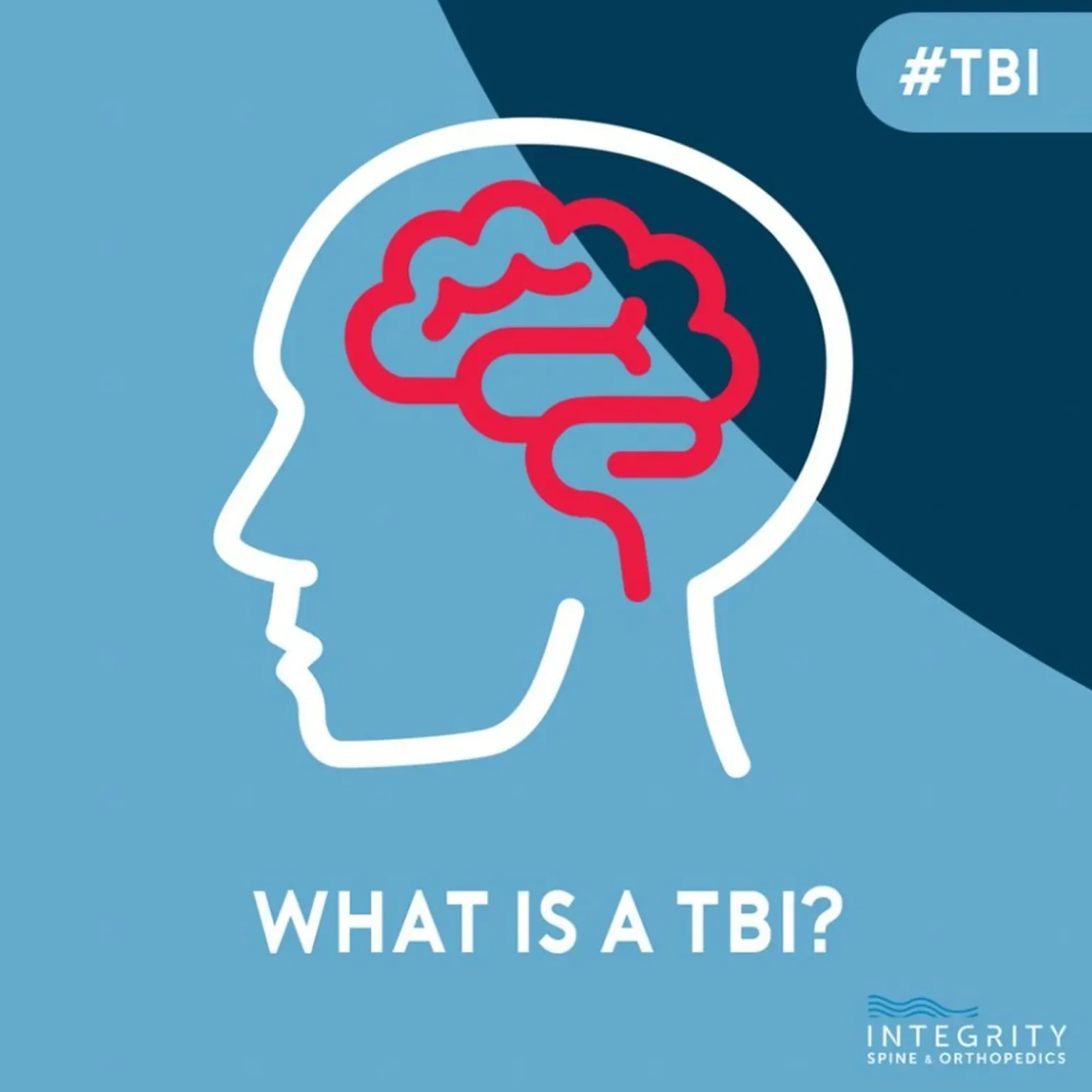Neurosurgery & Orthopedic Surgeons in Jacksonville

What is a TBI?
Per the CDC, a traumatic brain injury (TBI) is defined as “a disruption in the normal function of the brain that can be caused by a bump, blow, or jolt to the head, or penetrating head injury.”
Per the CDC, a traumatic brain injury (TBI) is defined as “a disruption in the normal function of the brain that can be caused by a bump, blow, or jolt to the head, or penetrating head injury.” People of all ages can develop a TBI, but children and older adults are the highest risk groups for head trauma.
Head trauma occurs when the brain moves around inside the skull during high-impact accidents. The brain’s rapid motion and impact with the inside of the skull causes brain cell damage, bleeding, bruises, fractures, nerve damage, and blood vessel damage. Multiple types of injuries can develop, including a concussion, hemorrhage, hematomas, skull fractures, contusions, or diffuse axonal injury (DAI). Many TBIs include a combination of head injuries.
Depending on the type and severity of injury, TBIs can cause physical, mental and psychological effects for as little as a few days, or they can cause permanent disability. Keep reading to learn more.
CAUSES
A TBI can occur from a direct blow to the head, a forceful back-and-forth motion of the head, or a penetrating object. Common events that lead to TBIs include:
- Motor vehicle accidents
- Motorcycle and bicycle accidents
- Falls
- Shaking (a common cause of injury among infants)
- High-impact sports collisions
- Being struck over the head
- Child or domestic abuse
- Fights
- An explosive blast
- A penetrating injury from a gunshot, shrapnel or knife
Some TBIs aren’t caused by traumatic accidents. Strokes, infections and blood clots can also lead to head or brain trauma.
SIGNS AND SYMPTOMS
A traumatic brain injury can present with numerous signs and symptoms. In some cases, symptoms appear immediately after a traumatic accident. In other cases, signs and symptoms may not present until hours, days, or even weeks after the accident. If you’re involved in a traumatic accident — or if your child, spouse or loved one is involved in a traumatic accident — remain on the lookout for symptoms over the next several weeks.
The following are common signs to monitor for yourself and others.
- Loss of consciousness
- Nausea/vomiting
- Headaches
- Dizziness
- Loss of balance and coordination
- Confusion or disorientation
- Fatigue or lethargy
- Blurred or double vision
- Ringing in the ears
- Sensitivity to light and/or sound
- Memory loss
- Focus and concentration issues
- Irritability or other personality changes
- Sleeping troubles
- Depression and anxiety
- Pupil dilation
- Seizures
- Slurred speech
- Swallowing or speaking difficulties
- Clear fluid running from the nose or ears
- Aggression or combativeness
- Inability to wake up or remain alert
- Weakness or numbness
- Paralysis
- Coma
A TBI is always a serious injury that requires medical attention. Keep in mind that it’s impossible to tell the extent of the damage by appearance alone. Even a mild brain injury causes brain cell damage and can significantly affect normal brain functioning. See a doctor or call 911 if you’re involved in an accident that results in a bump, blow, or jolt to the head.
DIAGNOSIS
If you seek medical care with a suspected TBI, your doctor will use the diagnostic phase to determine what type of injury you have and assess the severity of damage. Severe brain injuries can worsen quickly without care and treatment, so your doctor will move rapidly to make an accurate diagnosis and create a plan of action.
- Glasgow Coma Scale (GSC). The GSC is a 15-point test that helps doctors assess your level of consciousness and mental status. A higher score on the GSC indicates a less severe injury.
- Situation assessment. Your doctor will ask you questions about the accident and symptoms. If you aren’t able to answer questions, your doctor will attempt to fill in the gaps from witness statements or family members.
- Imaging studies. Several imaging studies may be used to detect and assess brain injuries. CT scans and MRIs uncover signs of bleeding, blood clots, swelling, inflammation, and bruises.
TREATMENT
Treatment depends on the type and severity of the injury.
- Mild. A mild brain injury usually requires nothing more than rest and over-the-counter medications to relieve headache pain. “Rest” includes resting from both physical and mental activities that are taxing. A mild brain injury should be closely monitored at home for new or worsening symptoms. Your doctor will let you know when it’s OK to return to work, school, exercise, and other activities.
- Moderate to severe. A moderate to severe brain injury usually requires a hospitalization, monitoring, and additional treatment. Many moderate and severe brain injuries require emergency surgery to stop bleeding, remove a blood clot, repair a fracture or relieve swelling. You may need emergency treatment or medications to stabilize your oxygen levels and blood pressure.
Many people with a moderate or severe brain injury require rehabilitation as part of the treatment process. Depending on the severity of the damage, you may need help learning how to walk, talk, eat, dress and perform daily activities again. You may also need help from a psychologist or counselor to manage depression, anxiety, or anger related to your condition.
Every head injury is different, and people recover at different speeds. Unfortunately, there’s no quick and easy way to heal a brain injury — it can take weeks, months, or even years.
COMPLICATIONS
Moderate and severe brain injuries often have long-term or permanent effects. Approximately 13.5 million individuals in the U.S. are living with a disability caused by a traumatic brain injury. Complications can affect every aspect of an individual’s life and well-being.
- Altered consciousness. Severe or widespread brain damage can result in changes to your level of consciousness. Altered states of consciousness include a coma, a vegetative state, or a minimally conscious state.
- Physical complications. Long-term physical complications of a brain injury can include partial or total paralysis, seizures, chronic headaches, infections, or vertigo.
- Cognitive problems. After a severe brain injury, you may experience changes in memory, focus, and attention. It may take you longer or feel more difficult to process and execute tasks that involve executive functioning skills.
- Emotional and behavioral changes. Many people experience new onset of irritability, mood swings, anger, depression and anxiety after suffering a brain injury. Some people lash out, act more aggressively, take more risks, or struggle with self-control.
- Communication issues. After a brain injury, you may have difficulty speaking, writing, organizing thoughts and ideas, or keeping up in a conversation.
- Sensory problems. Common sensory problems include tinnitus, vision changes, decrease in hand-eye coordination, altered sense of taste or smell, and dizziness. These symptoms may linger for several weeks or months following a brain injury.
ABOUT INTEGRITY SPINE AND ORTHOPEDICS
At Integrity Spine and Orthopedics, we pair top-notch orthopedics and spine care with honesty and transparency to deliver the most satisfactory patient experience possible. If you’re living with acute pain or a chronic condition, stop letting it control your life. We’ll help you get the treatment you need to get back on your feet and back to doing the activities you love.
Call us today or reach out online to schedule your first appointment in our Jacksonville, FL clinic.




